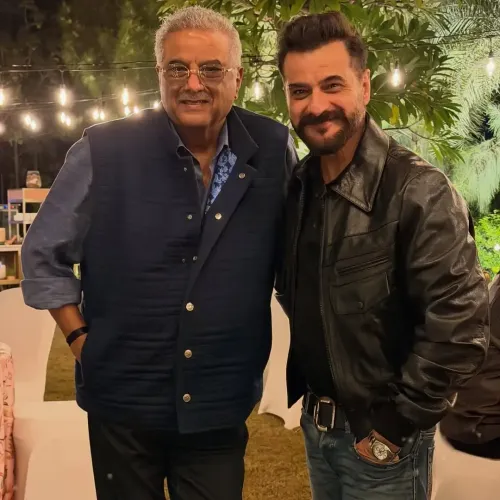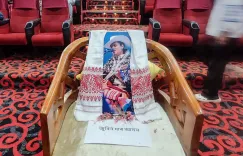Did Neena Gupta Join Kareena Kapoor in Criticizing Prada for Imitating Kolhapuri Chappals?

Synopsis
Key Takeaways
- Neena Gupta and Kareena Kapoor stand against cultural appropriation.
- Prada faced backlash for imitating Indian designs.
- Legal action is being pursued to protect artisans' rights.
- Kolhapuri chappals are a symbol of Indian craftsmanship.
- Social media amplifies voices advocating for traditional artisans.
Mumbai, July 7 (NationPress) In a recent social media outburst, veteran actress Neena Gupta has joined Kareena Kapoor in calling out luxury fashion brand Prada for allegedly stealing the design of the traditional Kolhapuri chappal.
On her Instagram, the ‘Metro In Dino’ actress showcased a handmade pair of Kolhapuris, a gift from the late Laxmikant Berde. In the video, Gupta expressed her sentiment, saying, “These Kolhapur slippers are highly sought after these days. I once asked Laxmikant Berde to get me a pair from Kolhapur, and he did. These are the most beautiful, handmade slippers I've ever owned. Thank you, Laxmikant. Though you are no longer with us, I cherish your memory.”
She simply labeled her post, “Real is real.” The clip features Neena gracefully walking in her Kolhapuri chappals.
Just a day earlier, Kareena Kapoor had also voiced her discontent towards Prada. Sharing a picture of herself in her original Kolhapuri chappals, she subtly criticized the brand. In her Instagram Stories, she stated, “Sorry not Prada…but my OG Kolhapuri.”
Prada has recently come under fire for displaying sandals that bear a striking resemblance to India's traditional Kolhapuri chappals, without crediting their Indian heritage. The luxury label unveiled these sandals as ‘Toe Ring Sandals’ during the Men’s Spring/Summer 2026 fashion show in Milan on June 22. Observers pointed out that the design closely mirrored Kolhapuri chappals, yet Prada marketed it under its own name without acknowledging its Indian origins.
In response, a Public Interest Litigation (PIL) was filed in the Bombay High Court, demanding compensation for the Indian artisans who create Kolhapuri chappals, arguing that their designs have been appropriated without recognition.









